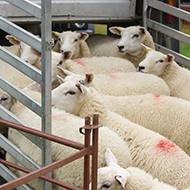
Consultation will support updating of policies aimed at safeguarding transported animals.
The European Food Safety Authority (EFSA) has launched a consultation to gather the views of stakeholders in order to inform the organisation's scientific assessment on the welfare of animals during transport in the EU.
According to EFSA, the purpose of the consultation is to:
- gather data and information related to the environment that animals experience during transport, such as temperature, humidity and ammonia levels
- obtain stakeholders’ views on whether the mandate sent to EFSA and the Authority's interpretation of its terms of reference cover relevant transport practices and areas of concern
- collect feedback on what practical obstacles stand in the way of compliance with current animal welfare legislation when transporting animals.
Nikolaus Kriz, head of EFSA’s Animal and Plant Health Unit, said: “We decided to hold an early consultation to ensure that our work is based on the widest evidence base possible. The scientific literature on animal transport is scarce, which is why we are looking for input from all relevant bodies, such as animal transport organisations, national authorities, NGOs, and veterinary associations.
“A successful public consultation is important not just for EFSA but for all those who want to strengthen the standards of animal welfare in the EU using the most up to date scientific knowledge.”
EFSA's assessment, called the scientific opinion, is expected to be finalised in the second half of 2022. It will identify the hazards and welfare consequences of common transport practices for six groups of animals: equids, bovines, small ruminants, pigs, domestic birds, and rabbits.
This assessment will support the European Commission’s current review of animal welfare legislation.
The consultation will close on 10 June 2021. To take part, please click here.



 The latest
The latest